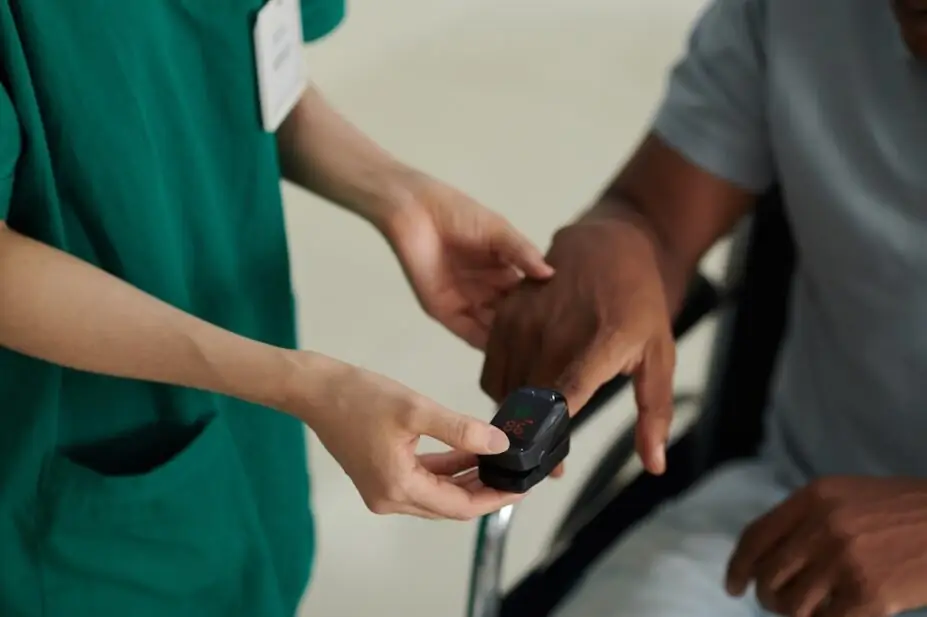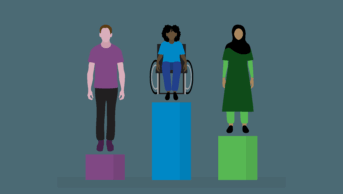
Shutterstock.com
The government has backed all 18 recommendations made in a review of racial and other biases in the design and use of medical devices.
In April 2021, the NHS Race and Health Observatory called for a review of pulse oximeters, after an analysis by Michigan University in the United States found that pulse oximeter readings of blood oxygen levels were three times more likely to be inaccurate among African-American patients.
A review from an independent panel was then commissioned by the Department of Health and Social Care (DHSC) in November 2021, following further concerns that the COVID-19 pandemic had exposed health disparities because it had a greater impact on people whose underlying health was poorer and people from ethnic minority communities.
The final report — ‘Equity in medical devices: independent review’, published on 11 March 2024 — says that “immediate mitigation actions” should be taken to ensure that pulse oximeter devices being used in the NHS can be used safely and equitably for all patient groups across different skin tones.
It recommends that the Medicines Healthcare products Regulatory Agency should strengthen standards for the approval of new pulse oximeters “to include sufficient clinical data to demonstrate accuracy overall and in groups with darker skin tones”.
The report says research commissioners should prioritise diversity and inclusion, with “the pursuit of equity being a key driver of investment decisions and project prioritisation”. This should mean the inclusion of underrepresented groups in all stages of research development and appraisal.
It also says that “few outside the health system” may appreciate how much artificial intelligence (AI) has become incorporated into healthcare.
The reviewers call on the government to commission an “online and offline academy” to improve the understanding of equity in AI-assisted medical devices and develop material to promote better ways for developers and users of AI devices to address equity issues.
In a foreword to the report, Dame Margaret Whitehead, chair of public health in the Department of Public Health and Policy at the University of Liverpool, who chaired the review, said: “The panel and I believe wholeheartedly that these recommendations need to be implemented as a matter of priority with full government support.
“Nowhere is the need to ensure AI safety and equity more pressing than in medical care, where built-in biases in applications have the potential to harm already disadvantaged patients. Now is the time to seize the opportunity to incorporate action on equity in medical devices into the overarching global strategies on AI safety.”
In a statement included in the government’s response to the report, health minister Andrew Stephenson said: “We wholeheartedly agree with the principles of the report: that medical technology should be unbiased and equitable.
“Doctors, nurses and other health professionals should be confident that they have appropriate medical technology for individual patient needs.”
Bola Owolabi, director of healthcare inequalities at NHS England, said: “Ensuring all patients get equitable access to high-quality healthcare remains crucial to reducing health inequalities and a priority for the NHS.
“I welcome the report’s findings and the NHS will work alongside government and MHRA to implement them and ensure NHS staff have the resources and training they need to tackle racial bias.”
Commenting on the report, Mahendra Patel, inclusion and diversity lead at the University of Oxford’s Primary Care Clinical Trials Unit, said: “What is happening with medical devices is that people of colour are not brought forward into this arena, so an assumption is made that the devices are applicable to people of all races.
“With all medical devices we need to ensure that we have a representative sample of the population to ensure equity in research, which we need to drive forward if we are going to tackle health inequalities meaningfully.”


